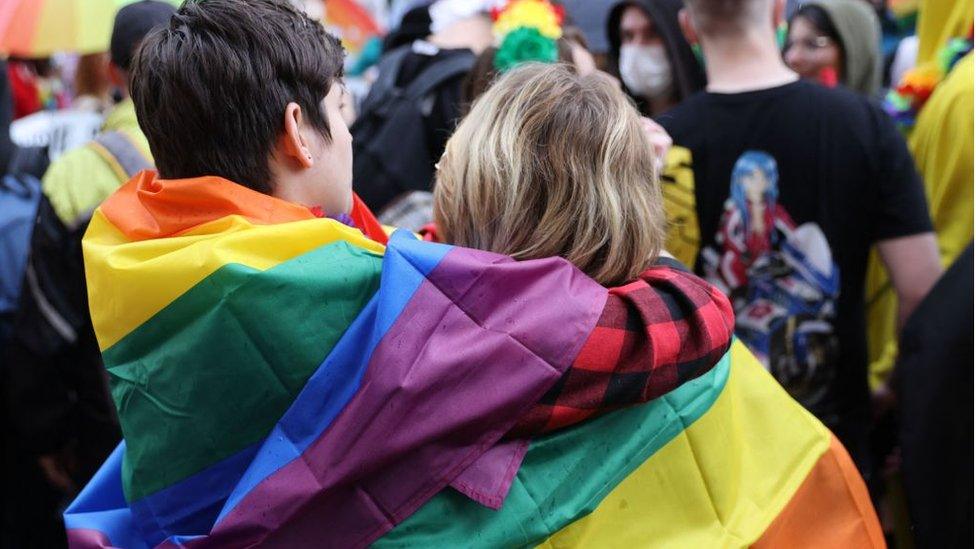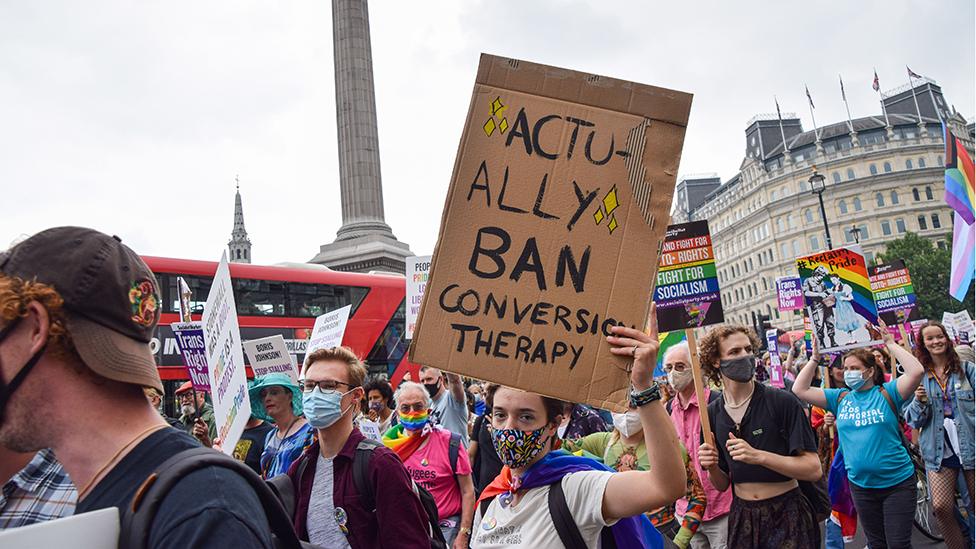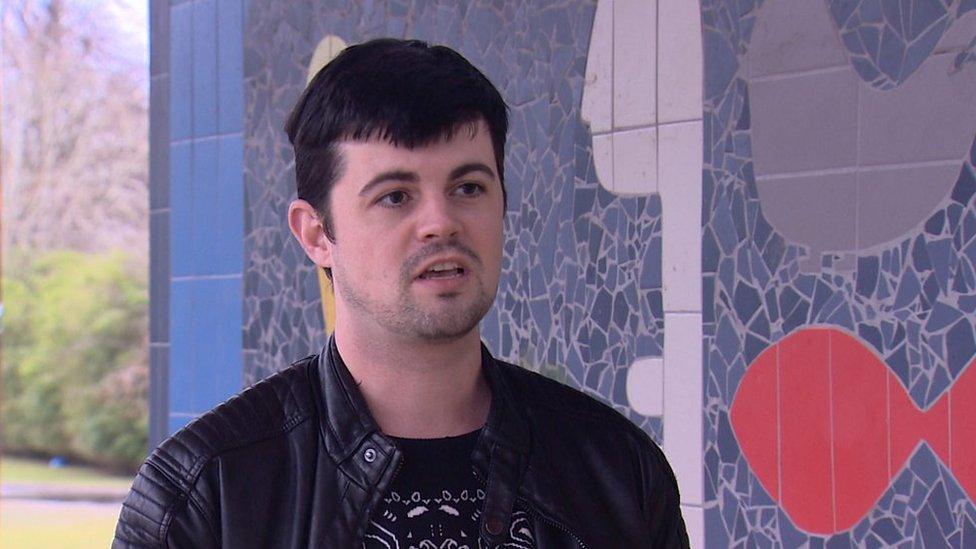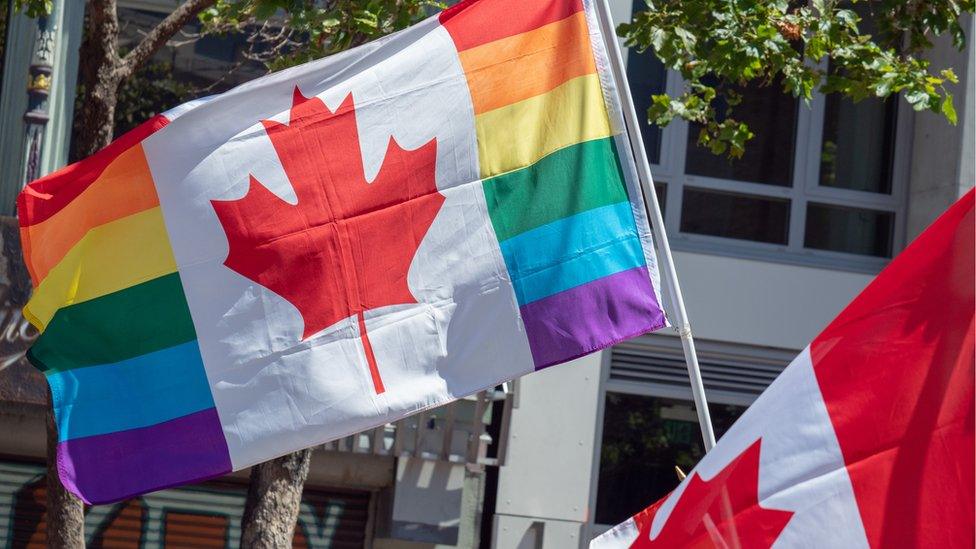LGBT rights: New French law to criminalise 'conversion therapy'
- Published

France has passed a new law criminalising the use of so-called "conversion therapy" to attempt to change the sexual orientation or gender identity of LGBTQ people.
The measure was passed unanimously by the National Assembly, 142 votes to 0.
Anyone convicted under the new law could face fines of up to €30,000 (£25,000) and two years in jail.
President Emmanuel Macron praised the move, tweeting that "being oneself is not a crime".
The law had already been overwhelmingly backed in the French upper house, the Senate, where it was passed by 305 votes to 28, with the conservative Republicans party opposing it.
The bill will now take force in the next 14 days once signed off by Mr Macron.
Laurence Vanceunebrock, an MP with President Macron's ruling En Marche party, sponsored the bill through the assembly and said that the law gave "a strong signal because we are formally condemning all those who consider a change of sex or identity as an illness".
Clément Beaune, the Europe minister in Mr Macron's centrist government, who is gay, tweeted that he was "proud of this agreement".
United Nations experts have repeatedly condemned conversion therapy, which can use group sessions, injections, electric shocks and prayer in its attempts to alter LGBTQ people's identities.
France's equalities and diversity minster, Elisabeth Moreno, condemned the practice as "barbaric" and emphasised that it "very often leaves permanent marks on bodies and minds" of those who are subjected to it.
The new legislation will open a range of avenues to those impacted by the practice, including allowing groups to take civil legal action on behalf of victims.
Punishments could also increase to three years imprisonment and additional fines of up to €45,000 (£37,000) where the practice is targeted at a minor or an adult considered to be vulnerable under the act.
The law comes as France marks 40 years since the decriminalisation of homosexuality.
Similar legislation has now been passed in a number of countries around the world, including Canada, Brazil, Ecuador, Malta, Albania and Germany.
Related topics
- Published20 September 2024

- Published4 March 2021

- Published2 December 2021
